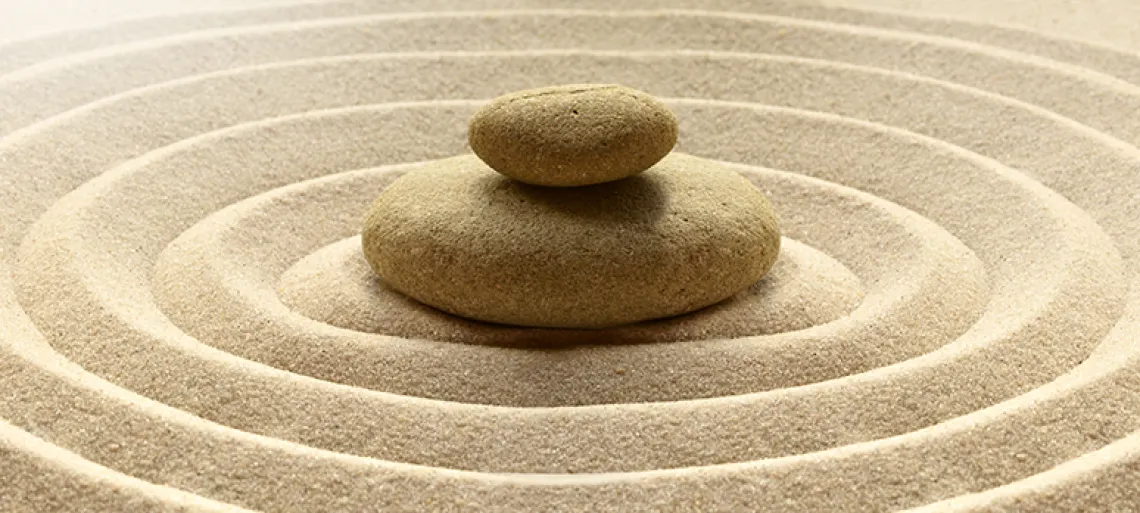An Introduction to Meditation

During the 1960s, celebrities such as George Harrison, widely known as the most spiritual member of The Beatles, introduced the West to the ancient spiritual traditions of the East. One of those traditions, meditation, became popular in the 1970s; over the past decade, meditation has resurged in popularity. Why this resurgence in meditation now, in this day and age?
Why Meditation?
In our everyday lives, our minds are full of many things. If we were to stop and listen to our minds, we might hear a string of unconnected thoughts: "What should I buy for dinner tonight?" "Was the boss happy with the project I turned in?" "There is that dental appointment, and oh, yes, the suit at the cleaners." "Those bills have not been opened, just stuffed in the drawer." "What will I tell the credit card company about the late payment?" "Should I lose a few pounds?" "How will my mother take it when I tell her I will not be coming home for the holidays?"
In an instant, our minds can travel around the world and back. We are often away from ourselves, off on another tangent a million miles away. No wonder loneliness is one of society's common ailments.
Our work, relationships, obligations and society encourage us to focus outside of ourselves. In our spare moments, we fill the void with hobbies, entertainment, books, exercise or chores. How often do we take quiet walks along the lake or in the park? How often do we sit and ponder? How often do we stop and be still?
This practice of returning to oneself is the practice of meditation. Meditation's purpose differs depending on whom you ask: Some think of it as self-purification; others as relaxation; still others as deep concentration. Yet most would agree meditation is a way to reconnect to ourselves by learning to listen, observe and stay present. Through meditation, we become aware and mindful.
Meditation is a method to relax ourselves and free ourselves from anxiety and fear. By concentrating on the present, this practice hopes to distract individuals from reflecting too heavily on the past or stressing about the future.
Studies using MRI technology indicate that people who meditate achieve deep states of relaxation in three areas of their brains: the frontal lobes, the parietal lobes and the limbic system. Along with this deep state of relaxation, meditation also results in stress reduction, lower blood pressure, increased immune function, clarity of mind, better focus, improved memory, and a greater sense of calmness and well-being.
How to Meditate
How does one practice meditation? There are numerous ways to meditate, such as sitting meditations, walking meditations, and closed-eye and open-eye meditations. Some of the different types of meditations include:
- Using "mantras," which are chosen words that you repeat in your mind over and over again Identifying the experiences you are having while sitting
- Staring at objects
- Focusing on inhaling and exhaling
- Placing your mind at the center of your body, and allowing your thoughts to drift like autumn leaves falling toward the trunk of a tree
- Creating a mental image, such as your favorite place in nature, and picturing yourself there
- Mentally addressing each muscle in your body, which will cause you to progressively relax and slow down your body.
Although all of these methods can be helpful, you will find that trying a variety will help you identify which practice works best for you.
Where to Meditate
It is important to create a special place where you always meditate. It becomes a physical reminder that there is a special space just for you. It also lets you know that you are important and that returning to yourself is vitally important. This special place on the outside will also help you lead yourself to the special place on the inside.
Create a meditation place that is quiet and projects an atmosphere of peace and calm, so that you will feel comfortable and will not have any interruptions. Some people like to listen to soft music or nature sounds, while others prefer silence.
So much to do, so little time to do it? If you take care of yourself, then you will be able to handle whatever comes your way. Meditation is the tool to begin the journey of knowing yourself.
Resources
National Center for Complementary and Integrative Health
National Institutes of Health
Centers for Disease Control and Prevention
©2023 ComPsych ® Corporation. All rights reserved. This information is for educational purposes only. It is always important to consult with the appropriate professional on financial, medical, legal, behavioral or other issues. As you read this information, it is your responsibility to make sure that the facts and ideas apply to your situation.

